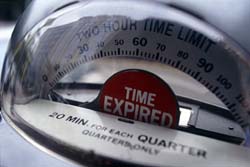News Release
Fraser Valley Real Estate Board
For Immediate Release:
Positive signs Fraser Valley housing market is starting to move
SURREY, BC – Sales on Fraser Valley’s Multiple Listing Service® (MLS®) in February experienced a typical ‘early spring’ surge, increasing by 48 per cent in one month going from 617 sales in January to 913 last month. However year‐over‐year, they reflect a decrease of 28 per cent compared to the 1,269 sales processed in February 2012. Since last September, home sales have idled at levels last seen in the early 2000s.
Based on February’s increase in activity, Ron Todson, President of the Board, is guardedly optimistic, “We’re seeing signals that the stand‐off between buyers and sellers over the last six months is coming to an end.
“Business has picked up in the last month with increased traffic at open houses, sellers quicker to accept offers and homes selling on average two weeks faster than they did in January.”
Todson adds that tightening inventory has also had an effect, “When buyers see that their selection is diminishing they’re more motivated to act.” The Board posted 2,582 new listings last month, a decrease of 9 per cent compared to the 2,846 posted during February last year pushing the total number of active listings down by 1.6 per cent compared to 2012.
“As your REALTOR® will explain, each market is different. Right now, the market for detached homes is balanced in North Delta and Langley. The condo market is brisk in Abbotsford and Central Surrey and townhome sales are steady in North and Central Surrey as well as Cloverdale.
“One commonality amongst these areas and property types is greater affordability. What’s not doing well generally anywhere in the Fraser Valley is sales of higher‐end homes unless they are priced competitively.”
In February, the benchmark price of single family detached homes in the Fraser Valley was $540,900, an increase of 0.7 per cent compared to $537,200 during the same month last year. For townhouses, the benchmark price was $296,700, a decrease of 1.3 per cent compared to $300,500 in February 2012 and the benchmark price of apartments was $202,500, an increase of 1.5 per cent compared to $199,500 in February 2012.
In February, it took on average 49 days to sell a detached home compared to 64 days in January. Townhomes took 60 days on average to sell compared to 72 days the month before and apartments spent an average of 66 days on the market in February compared to 83 days in January.
—30 —
The Fraser Valley Real Estate Board is an association of 2,781 real estate professionals who live and work in the BC communities of North Delta, Surrey, White Rock, Langley, Abbotsford, and Mission. The FVREB marked its 90‐year anniversary in 2011.

